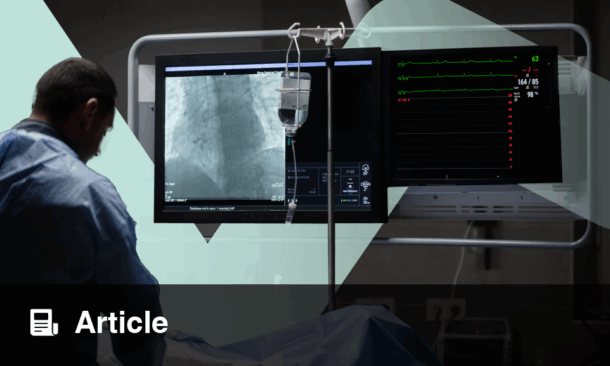Uwe Zeymer | Interventional Cardiologist, Klinikum Ludwigshafen, Germany
Citation: EMJ Int Cardiol. 2023; DOI/10.33590/emjintcardiol/10303900. https://doi.org/10.33590/emjintcardiol/10303900.
![]()
EMJ had the pleasure of speaking to Uwe Zeymer, who shared insights into their career path, EuroPCR, and key findings from their publications.
What led you to pursue a career in interventional cardiology?
I was always fascinated by the possibility of doing some manual work, and to be able not only to do diagnostic procedures, but to perform interventions. The possibility to improve outcomes in patients with acute myocardial infarction with primary percutaneous coronary intervention (PCI) seemed especially attractive to me. Later, I was intrigued by the dramatic effect of an early invasive approach on mortality in patients with cardiogenic shock.
You currently have more than 700 international publications to your name, for example in acute cardiac care and acute coronary syndromes. What do you believe to be the current gaps in literature, and which topics merit greater attention?
The question about the prognostic impact of PCI in patients with chronic coronary syndromes deserves greater attention. Despite the fact that about half of all PCI procedures are performed in these patients, the results of randomised trial are somewhat disappointing so far. Well planned and executed trials are still needed to prove the symptomatic and prognostic impact of PCI outside acute myocardial infarction.
In the recently published observational study you authored, entitled ‘Rivaroxaban in Patients with Atrial Fibrillation Who Underwent Percutaneous Coronary Intervention in Clinical Practice’, what was the key message you were trying to deliver?
With this study, we prospectively collected data on a high-risk subgroup of patients: those with atrial fibrillation undergoing PCI. We were able to show that rivaroxaban in our real-world experience was as effective and safe as in the randomised clinical trial, the PIONEER-AF PCI study.1
You have presented several sessions at the European Association for Percutaneous Cardiovascular Interventions (EuroPCR). Can you comment on the ways in which the EuroPCR aims to serve the needs of each individual patient by helping the cardiovascular community to share knowledge, experience, and practice?
EuroPCR is a perfect platform to share knowledge in interventional cardiology, and to discuss new procedures and study results. The presentation of cases is especially educative, and helpful to improve skills and knowledge of the participants.
Over the years, you have been practising as an interventional cardiologist. What are the most significant changes you have observed in the field?
When I started my career, the only valve interventions that could be performed were balloon valvuloplasties. The advent of transfemoral aortic valve implantations has dramatically changed the spectrum of interventional cardiology, and very much improved the outcomes of elderly patients with aortic stenosis.
How have you acquired the leadership skills to perform your role as a senior cardiologist at the Klinikum Ludwigshafen in Germany?
I was trained by the late Karl-Ludwig Neuhaus, who was an innovator in the field of interventional cardiology. He taught me that randomised clinical trials are necessary to prove or disprove clinical questions in cardiology, and this is something I have tried to do over my career as a researcher.
Are there any innovations on the horizon in the field of interventional cardiology that you believe are particularly noteworthy?
As mentioned before, percutaneous valve interventions are certainly the most important advances in the field of interventional cardiology. New techniques and devices will improve outcomes and widen indications over the next years.








